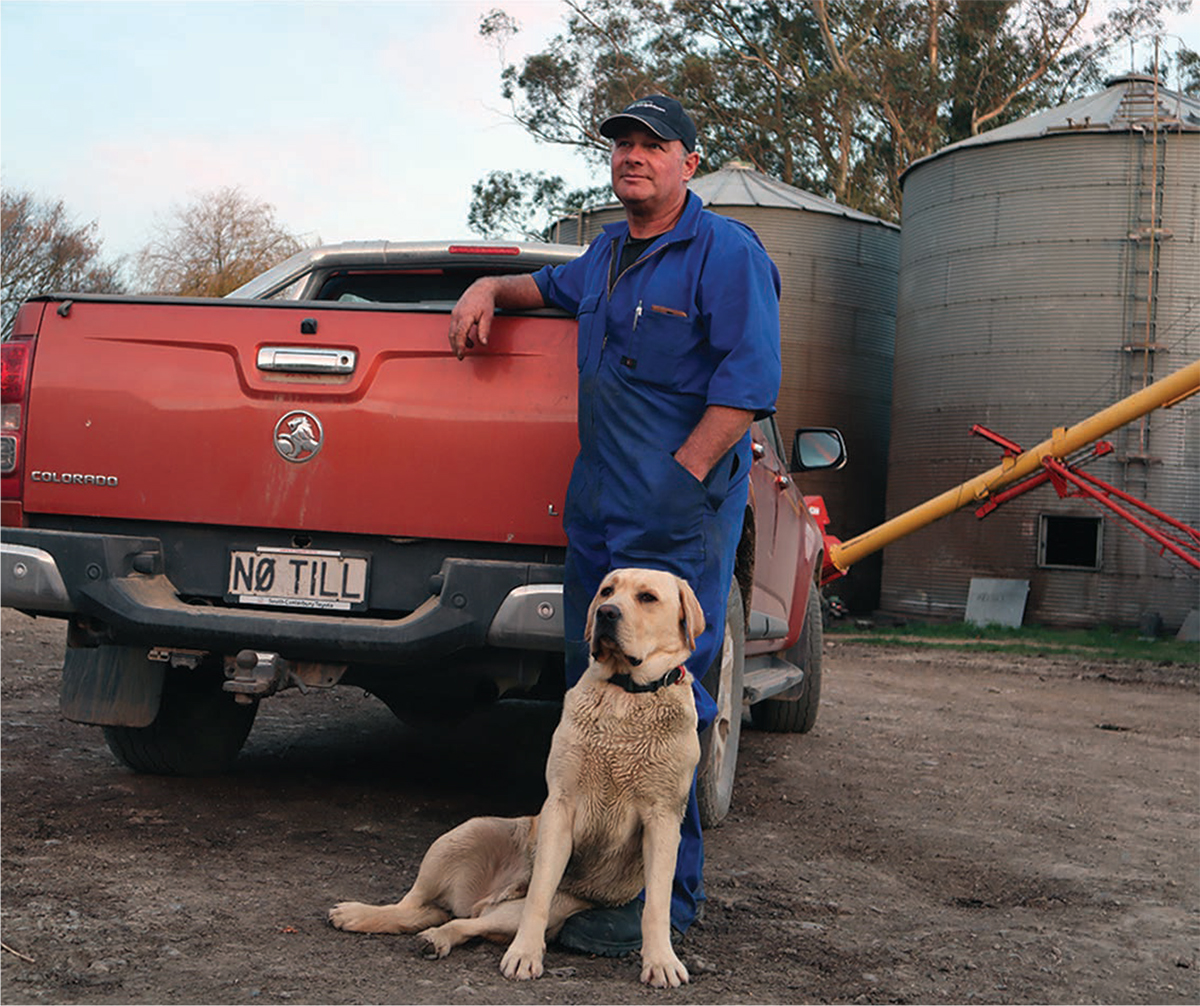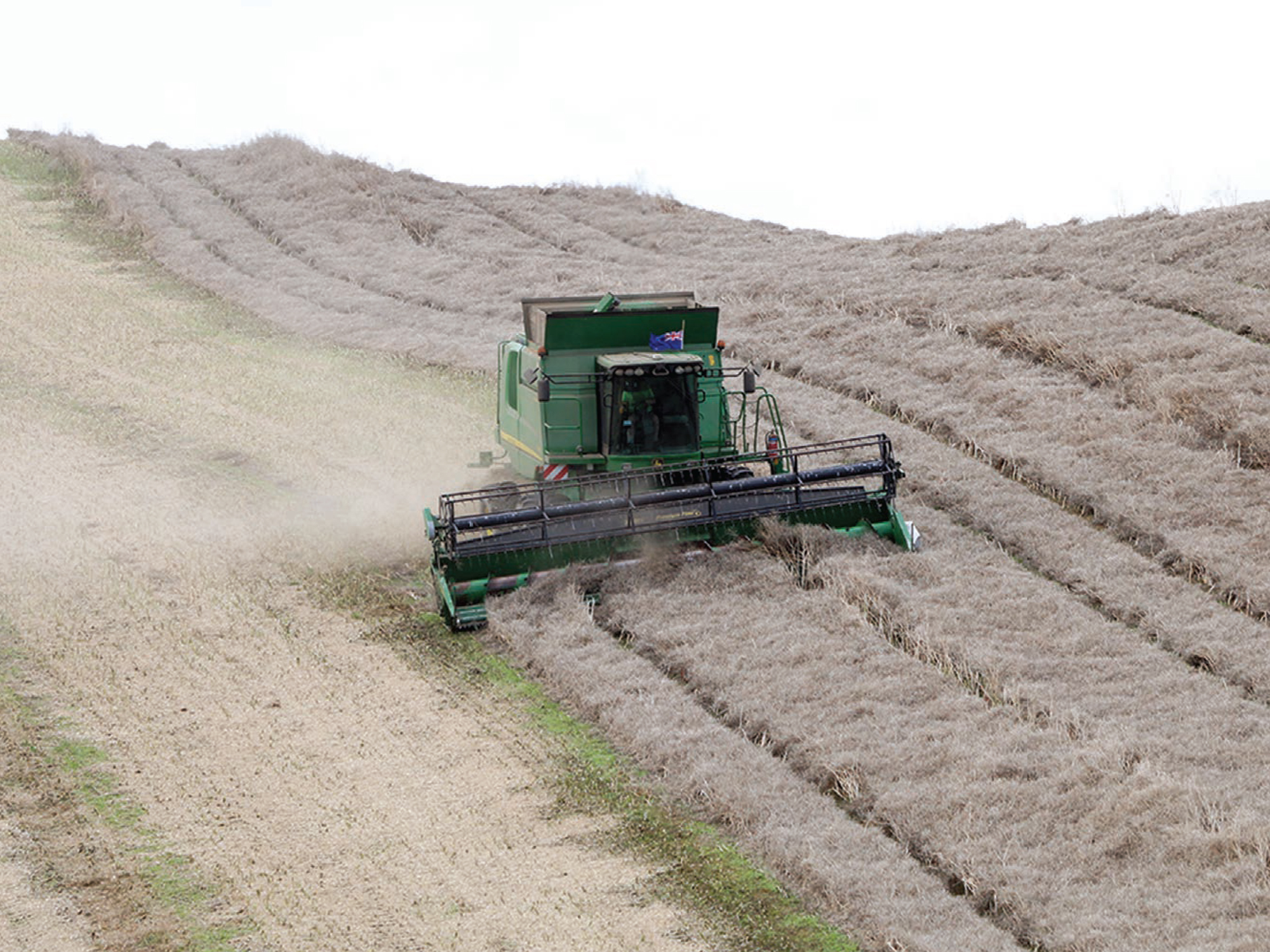Third generation South Canterbury arable farmer Michael Porter says there is enormous satisfaction in being part of the growing season from one end right through to the other.
“We witness the miracle of growth first hand and we benefit from what it provides. Every day has its challenges and rewards, but I love seeing the plant emerge from the ground, and looking after it as we go. There’s a real sense of achievement when you take one seed and convert it to over 150 seeds on a wheat plant. It’s beautiful the way nature provides.”
The Porter’s 480 hectare farm is located in the little farming community of Lyalldale, 25 kilometres south of Timaru.
While 30% of the farm is virtually at, the balance is marginal with slopes up to 30° – not ideal for arable farming and impossible to harvest without clever hydraulics.
Included in the Porters farming mix is a 420-hectare harvest, 40 – 80 trading cattle and 700 Coopdale capital stock ewes.

“It’s beautiful the way nature provides,” says arable farmer Michael Porter. Harvesting on rolling country at Lyalldale, south of Timaru.
“We grow dryland commodity crops including feed wheat and barley, perennial rye grass seed crop, oil seed rape, peas, beans, linseed, radish and vetch. Everything is grown for grain and seed. Virtually all ryegrass goes to the Northern Hemisphere seed multiplication market or Australia. Feed wheat and barley goes to poultry, pigs or dairy here in New Zealand, the oil seed rape goes to Pure Oil New Zealand.”
Last year the Porter’s passion for growing was rewarded at the United Wheat Growers Award, winning the Farmers Mill Biscuit Wheat of the Year for Ignite.
Michael says his entry was motivated by the dominance of Mid Canterbury entries, figuring it was time to put South Canterbury on the map and showcase its arable potential.
“There’s a lot of grain grown down here and we can grow it as well, if not better, than the Mid-Canterbury guys can.”
Farming on the hills of South Canterbury and having to take into account challenges that are completely different to other arable farmers, the Porters are doing things completely differently to what many other farmers are doing.

While 30% of the farm is virtually at, the balance is marginal with slopes up to 30° – not ideal for arable farming and impossible to harvest without clever hydraulics.
“We have to be mindful of erosion, the type of land use, and moisture retention – we don’t have irrigation and tend to lose moisture on the thinner tops much faster than the heavy flat country. Because of those challenges we’ve gone part way down the re-gen ag path. I don’t consider myself to be a re-gen ag farmer but we stick staunchly to the five main tenets of re-gen ag, which inform our decision making process. The first is little or no soil disturbance, so no till or very little cultivation. The second is soil armour, which literally means we have 100% soil cover 100% of the time. The third is living roots. We want something growing in the paddock for as long as we can throughout the growing season. The fourth is diverse crop rotation. Altogether we have ten crops in our rotation plus the livestock side which provides pastoral rotation as well. The fifth is the re-introduction of livestock onto the arable system.”
Michael says the award proves the potential of South Canterbury as a legitimate grain growing area, and legitimises the competitiveness of his family’s arable business – the way things are done compared to the more mainstream conventional way involving cultivation and bare soil.
“My wife Lynne and our children have put up with a lot in the past. I’ve basically learned how to farm three times. Once as a teenager, then when we decided to go no tillage, and again when we went through the re-gen ag change. I don’t think there’s been a time when there hasn’t been constant change and that has been a bit hard on the family, because they’re looking at costly mistakes that weren’t happening to my neighbours. Doug Avery said you’re either winning or you are learning and you can’t win without learning, so get out there and learn.”




